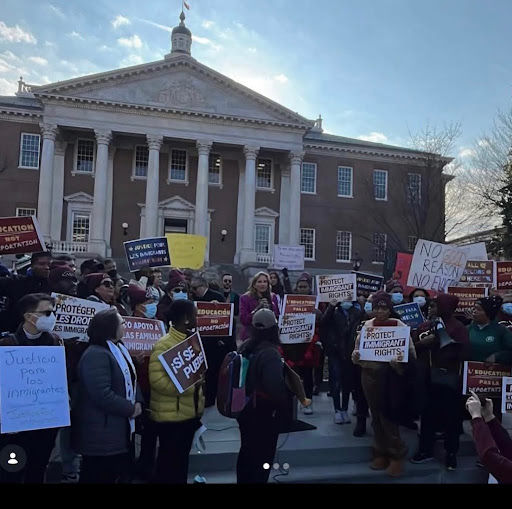Transportation, District 20 Night, and my Legislation
- Jan 27, 2019
- 3 min read

Dear Friend:
The second full week of session brought the beginning of hearings on legislation. For me, it ended with a plunge into the frigid Potomac River, before which I was honored to speak at the 14th Annual Keep Winter Cold Polar Bear Plunge with Chesapeake Climate Action Network, a leader in the effort to pass the Clean Energy Jobs Act. This bill will come to my committee and I look forward to fighting hard to increase our renewable energy portfolio and build good jobs in the green economy in Maryland.
We continue to work to stop the Governor’s plan to widen the Beltway. I have co-sponsored two pieces of legislation to give local government more input in the building of toll roads. The Environment and Transportation Committee and the Appropriations Committee held a joint hearing this week on HB91, emergency legislation that would require the Department of Transportation to complete the environmental review and consider alternatives before soliciting a company in the Public Private Partnership for beltway expansion.
I have continued to build support for several of the bills I will introduce. Below my signature, you can find information about some of those bills.
Please save the date for District 20 Night, February 18th, 6pm. But you don’t have to wait for D20 Night to come see me. Stop by any time, My Annapolis office is Room 226 in the House Office Building at 6 Bladen Street in Annapolis and my office email address is lorig.charkoudian@house.state.md.us. My office phone number is 410-841-3423 and 301-858-3423.
Onward,
Lorig Charkoudian
Community Choice Aggregation Enabling Legislation
This bill enables local governments to create Community Choice Aggregation (CCA). With CCA, residents become empowered through their local government to negotiate contracts that protect consumers and the environment while getting lower electricity rates. A local government can choose to form a CCA which allows the county, municipality, or group of counties/municipalities to purchase electricity on behalf of all within its jurisdiction.
Through Community Choice, local governments can negotiate electricity rates, the source of energy generation, and other key decisions with energy utilities on behalf of consumers and businesses. Simple economics dictates that large buyers of electricity will get the best rates. CCAs allow communities to take control of their electricity purchases, while protecting the environment by emphasizing a more rapid transition to renewable energy. At present seven other states have authorized local governments to create Community Choice Aggregators. But Maryland does not yet provide the option for this type of local control.
Considering the Social Cost of Carbon in Energy Efficiency Decision-making
When we burn fossil fuels we change the climate, and climate change comes with costs — storms, flooding, and other extreme weather events; sea level rise; infectious diseases; increased food insecurity; and more. Independent economists and scientists have calculated the societal cost for every ton of carbon dioxide that is released into the atmosphere. This number is known as the “Social Cost of Carbon.” This bill requires the state of Maryland to take the Social Cost of Carbon into account when planning new construction projects and purchasing vehicles. This will allow our state to make better informed decisions, reduce our contribution to climate change, and ultimately save taxpayer money. This bill is not a carbon fee and does not force private entities to pay for carbon; it simply makes the state consider carbon impacts upfront in decision-making rather than continuing to pay for the devastating consequences of carbon once it’s emitted into the atmosphere.
Crisis Intervention Team Technical Assistance Center
A Crisis Intervention Team (CIT) is a partnership between law enforcement and behavioral health providers to assist and divert individuals experiencing a behavioral health crisis. Effective CIT programs lead to fewer lethal interventions, better outcomes, and increased safety for all involved.This bill will create a CIT Technical Assistance Center to support law enforcement, behavioral health agencies, hospitals, and other entities that engage with individuals in behavior health crises. This will be accomplished by assisting local jurisdictions in implementing the nationally-recognized Ten Essential Elements of Crisis Intervention Teams.
Expanding Cottage Food Opportunities
Strengthening Maryland’s Cottage Food Law is a win-win for culinary entrepreneurs, for consumers, for our state’s local economy and for the climate. It would reduce start-up barriers for fledgling entrepreneurs and grow more local businesses with potential for expansion. Maryland’s Cottage Food Law, enables residential kitchens to become small business incubators. The law allows certain “non-potentially hazardous food products” such as breads, jams, cakes, cookies and candies, to be produced in residential kitchens, with annual sales not exceeding $25,000. This bill would expand opportunities for sales of these products to grocery stores.




Comments